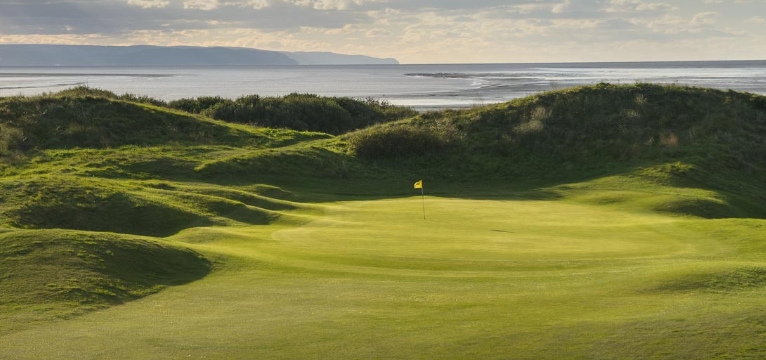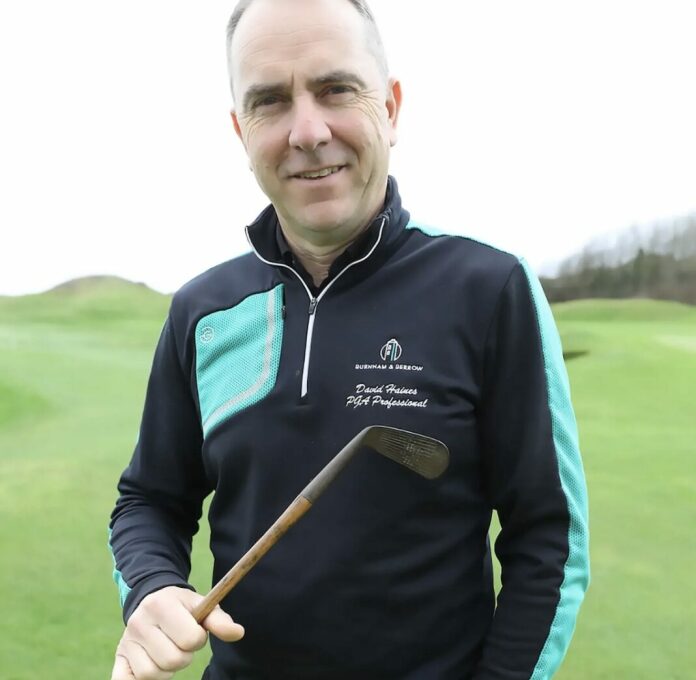Burnham & Berrow Golf Club head professional David Haines has turned back the clock in a bid to replicate an astonishing round by one of his predecessors.
David is the latest in a line of distinguished PGA professionals at the Burnham-On-Sea club that began with the Association’s co-founder JH Taylor and was served for 60 years by three members of the Bradbeer dynasty – Bob, Fred, and Richard.
The club has also produced an extraordinary number of elite level professional golfers, notably the Whitcombes – Ernest, Charles, and Reg (pictured below).
All three represented Great Britain in the Ryder Cup and Reg, a former PGA Captain, won the Open Championship in 1938. More recently, nine times European Tour winner Brian Barnes was a junior member who, taught by his father, the then club secretary, learned the game there.
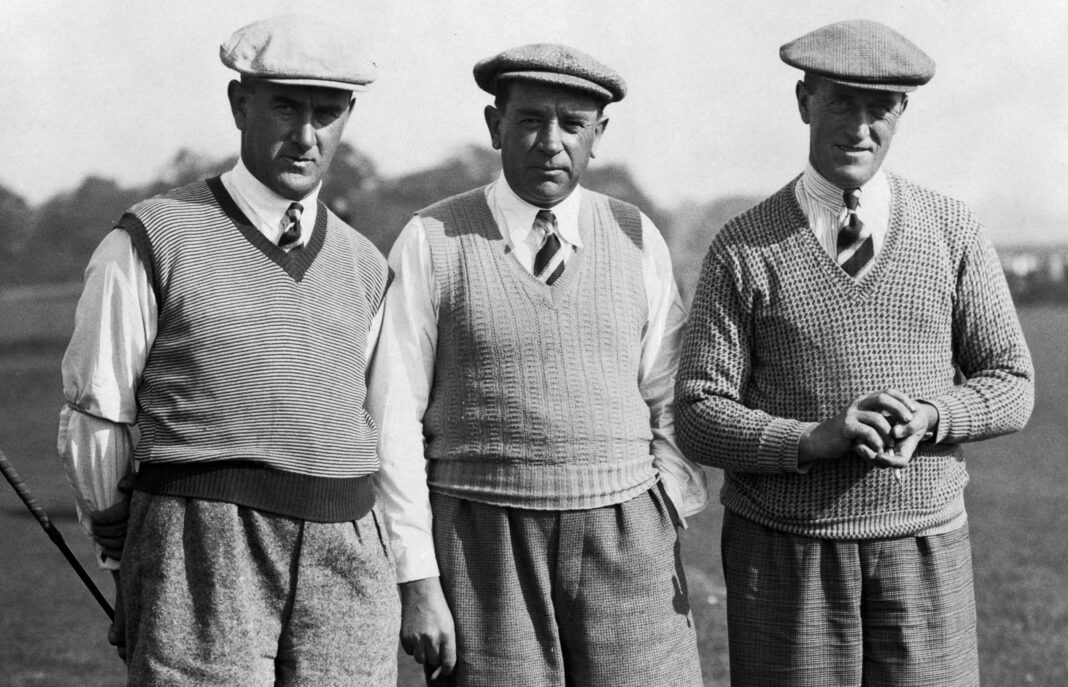
None of this distinguished band, however, achieved such a remarkable feat as Ernie Foord who, aged just 16, succeeded his father Walter as head pro in 1900 and served the club until 1916 when he emigrated to the USA. Four years prior to that he had earned nationwide fame by negotiating Burnham’s championship links in 73 shots, using just one club – his putter.
The achievement was described in The Times by Bernard Darwin, its distinguished golf correspondent, as ‘a truly astonishing score’ and a book about it, Golf’s Most Astonishing Round, has been published recently.
David, who learned the game at Burnham & Berrow as a junior member and takes a keen interest in the club’s storied past, played a part in helping the author, Anthony Gibson, with his research. Then, inspired by the tale, he set about re-enacting Foord’s round.
Inevitably the lay out has changed considerably since the club was founded in 1890, not least due to the work of Foord’s father, and celebrated golf course architects Herbert Fowler, Harry Colt, Dr Alister MacKenzie and, more recently, Martin Ebert.
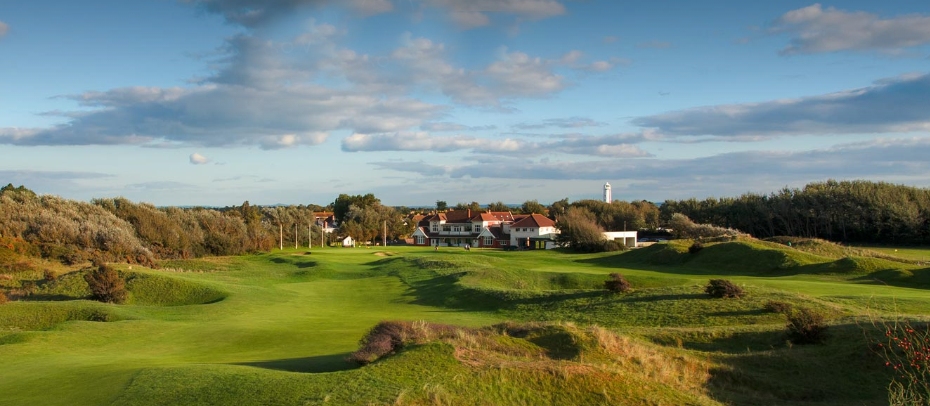 “There are more than 40 holes at Burnham which are no longer in existence – it’s incredible how it has changed,” David explains.
“There are more than 40 holes at Burnham which are no longer in existence – it’s incredible how it has changed,” David explains.
“And there are only eight holes in existence today that Ernest Foord would have played back in 1912.”
“But I played the same length golf course that he played, which was round about 6,100 yards. So, I effectively played the same length, but not necessarily the same hole. And I suppose in some ways the conditions of the fairways and the quality of the greens are much better nowadays.”
“The greens would not have been as quick and smooth as they are now and there would have been a lot of challenging lies on the fairways.”
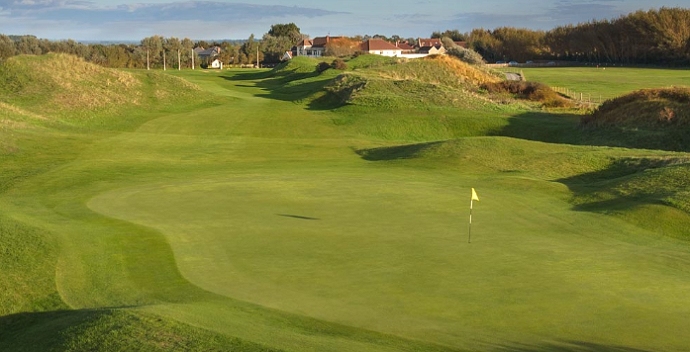
As well as replicating the distance Foord negotiated, Haines followed suit, as near as possible, with his putter. Not for him one of Scotty Cameron’s finest but one fashioned by Foord.
“I actually have got an Ernie Foord putter,” reveals David. “Putters in those days had a lot more loft so it resembles a mid-iron, which is between a three and four iron. I used that and a 1.62 ball as well.”
Suitably equipped with the putter, pictured below, Haines set himself a target: “I was looking at a bogey a hole and aiming to break 90.”
“Distance-wise it was surprising how far the ball travelled. The seventh hole is about 440 to 450 yards and, helped by a slight breeze, I was pin-high in two.”
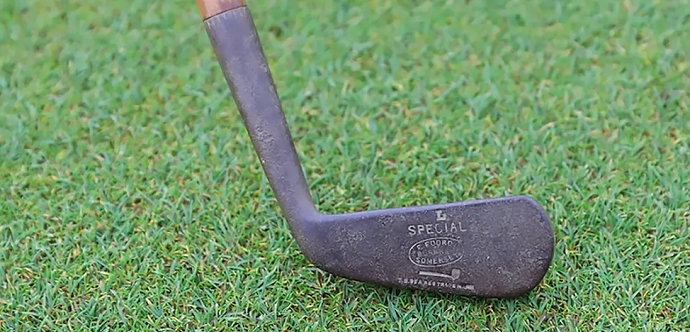
“Getting out of the rough with long shots was quite tricky and the most difficult shots were the ones when I was faced with a pitch from 40 to 50 yards out.”
“In the event, and with hindsight, my target was somewhat over-ambitious. I had a triple bogey on one hole, a double on another, and ended up taking 96 shots. But I did take 73 shots at one point, although I was probably back on about the 12th hole!”
“To go round in 73 with a putter is a hell of a feat. I’d probably struggle these days to get round in 73 with my own modern sets of clubs using 14 of them. But going round with a putter was great fun and I may well have another go!”
